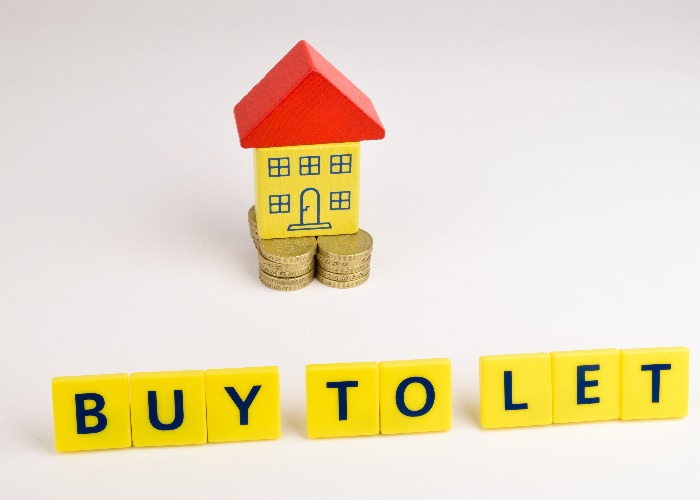Will the Autumn Budget Stamp Duty changes affect British landlords?

The big news from last week’s Budget was the announcement that Stamp Duty would be scrapped for first-time buyers. But what will that mean for buy-to-let landlords? We ask the experts.
In his Autumn Budget last week, Chancellor Philip Hammond announced that Stamp Duty would be abolished immediately for first-time buyers purchasing homes worth under £300,000 and on the first £300,000 on properties costing up to £500,000.
The tax change is expected to save some first-time buyers as much as £5,000, but some commentators argue that it could cost buy-to-let landlords far more than that.
Autumn Budget 2017: What you need to know
Prices could be on the up
In recent years chancellors have used the Budget as an opportunity to hammer landlords with tax changes that make owning a property empire a lot less appealing. This year there was no direct blow to landlords, but some industry experts say that the Stamp Duty change for first-time buyers is an indirect attack.
The first potential issue affects both first-time buyers and buy-to-let landlords: the possibility that the change could push house prices up as new buyers have more room to increase their offers.
Landlords looking to add to their property portfolio could find they face more competition from first-time buyers as a result, particularly if it means that more people can afford to buy their first home.
“It is not clear whether first-time buyers will feel the full benefit of the Stamp Duty change or whether prices for these properties will simply increase to swallow up the benefit,” says D’mitri Zaprzala, head of sales at Octopus Property.
If house prices simply rise by £5,000 as sellers look to benefit from the Stamp Duty change then landlords could see their yields on potential properties shrink.
“Landlords are being squeezed hard at the moment so a rental property has to be a solid investment prospect before a landlord will buy it,” says Simon Gresswell from estate agent Finlay Brewer. This means they are looking very closely at how much a property might yield.
What to consider before setting up a buy-to-let company
First-time buyers could have more haggle-power
Whether the Stamp Duty changes will give first-time buyers more power to haggle is a difficult call, with experts arguing for both sides.
First-time buyers may have more money available to them to negotiate the price, according to one expert.
“First-time buyers will now have more room to negotiate, while landlords will still have to factor in the 3% Stamp Duty surcharge on additional property purchases,” says Danny Zane, joint chair of the Association of Independent Inventory Clerks.
But landlords have other things they can bring to the negotiation table that still puts them in a strong position.
“The competition with first-time buyers hasn’t altered the landscape for professional landlords – the costs are higher for landlords but the speed many landlords can act at outweighs the first-time buyer, who has to go through a lengthy mortgage process and often fails to get a mortgage after the process has started,” says Rebecca Lloyd, residential property and landlord specialist at Setfords Solicitors.
Find the right mortgage for you today with LoveMoney
Bigger problems remain
The changes to Stamp Duty may not cause great concern for landlords, but that is because they are facing far bigger problems – lack of housing supply and punitive tax changes.
“The abolition of Stamp Duty for first-time buyers was headline grabbing but is unlikely to do a great deal in terms of making home ownership the norm for many,” says Richard Turner, senior tax manager at accountancy firm Menzies.
“The real issue is the lack of housing supply and, while in the short term there will be a benefit for those imminently buying their first home, it seems likely that the result will be to push house prices up in the longer term.”
Landlords are giving up
Recent tax changes have meant that many landlords are selling their properties and abandoning life as a landlord. From next year, landlords who pay higher or additional rate income tax will no longer receive tax relief on mortgage interest payments.
Landlords also have to pay the 3% additional Stamp Duty rate when they purchase properties.
“Many smaller landlords have started leaving the market,” says Mandy St John Davey, who owns a number of rental properties.
Things getting worse for first-time buyers?
By penalising landlords, the Government may have actually made life harder for first-time buyers in a vicious circle. As investors abandon buy-to-let it will mean there are fewer rental properties available. As a result, rents could rise, making it harder for people who are renting to save up for a deposit for a home of their own.
“Most landlords provide a valuable service by providing homes for those that cannot afford to buy, or simply choose the flexibility of renting,” says St John Davey.
“The Chancellor has made it very difficult for the buy-to-let market and it is my opinion that the Government should work together with private rental landlords who provide a service rather than force them to exit a market where there is currently no alternative.”
Saving for your first home? Find the best savings account with LoveMONEY
Comments
Be the first to comment
Do you want to comment on this article? You need to be signed in for this feature
